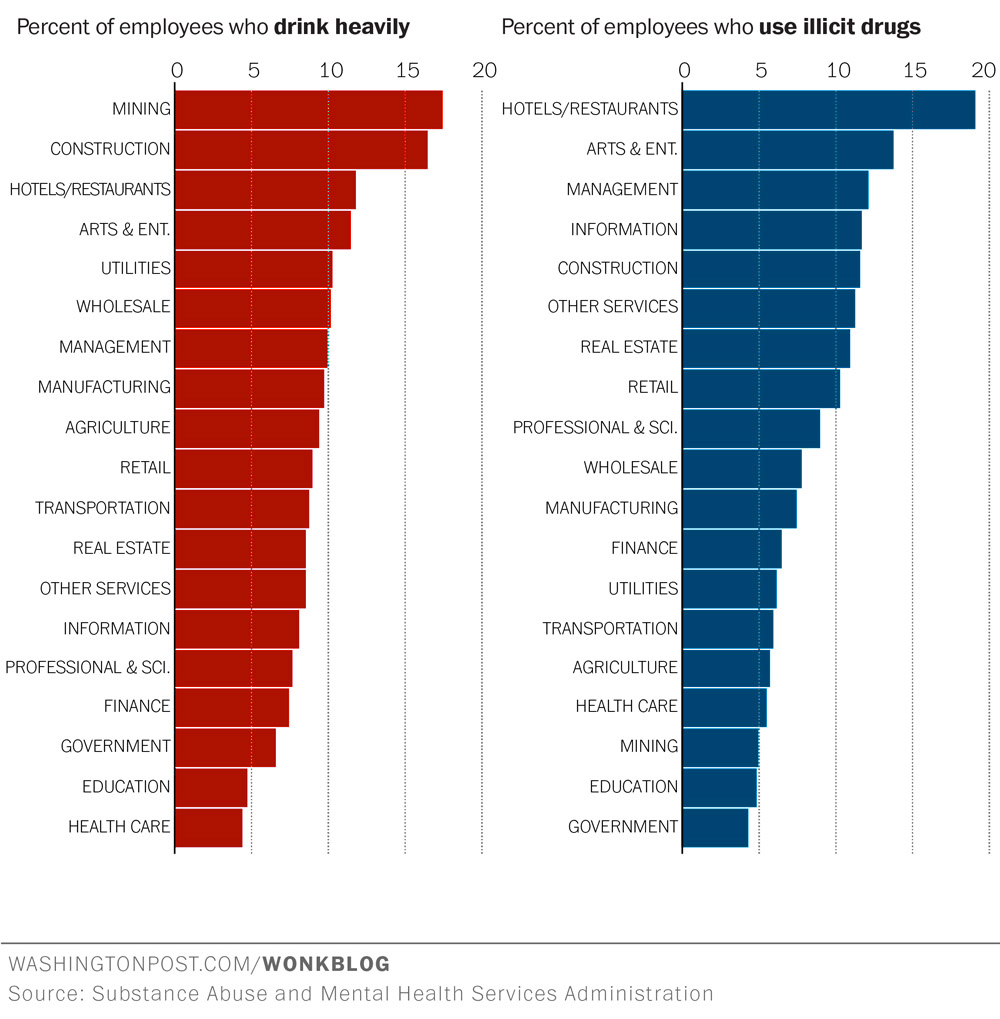Why should you implement a drug-free
workplace program?
Eliminating drug use by employees can not only increase productivity levels but can decrease the number of injuries and Workers Compensation claims.
- An estimated 3.1 percent of employed adults actually used illicit drugs before reporting to work or during work hours at least once in the past year, with about 2.9 percent working while under the influence of an illicit drug. (Frone, M. R. (2006). Prevalence and distribution of illicit drug use in the workforce and in the workplace: Findings and implications from a U.S. national survey. Journal of Applied Psychology, 91, 856-869.)
- An estimated 1.7 percent of employed adults worked while under the influence of alcohol, and 9.2 percent worked with a hangover in the past year. (Frone, M. R. (2006). Prevalence and distribution of alcohol use and impairment in the workplace: A U.S. national survey. Journal of Studies on Alcohol, 76, 147-156.)
- Among adults in 2012, most binge and heavy alcohol users were employed. Among the 57.9 million adults who were binge drinkers, 43.6 million (75.4 percent) were employed either full or part time. Among the 16.7 million adults who were heavy drinkers, 12.5 million (74.7 percent) were employed. (Results from the 2012 National Survey on Drug Use and Health: Summary of National Findings SAMSHA)
- A company can expect to experience higher absenteeism and more job-related accidents because of employees’ drug use.
- Business owners lose an estimated $100 billion per year because of substance abuse.
- Employees who use drugs are only two thirds as productive as nonusers, and their use contributes to increased thefts, damaged equipment and other unnecessary costs in the workplace.
- According to the U.S. Department of Labor, one in five workers report that they have had to work harder, redo work or cover for a co-worker, or have been put in danger or injured as a result of a fellow employee’s drinking.
- Small business owners are especially vulnerable because they often do not have an established drug-free workplace policy, do not require new employees to submit to drug testing prior to employment and have smaller financial reserves to expend if an employee causes a job-related accident or injury while impaired.
Report on Drug and Alcohol Use by Industry:

Source: Washington Post, Christopher Ingraham, April 29th, 2015

